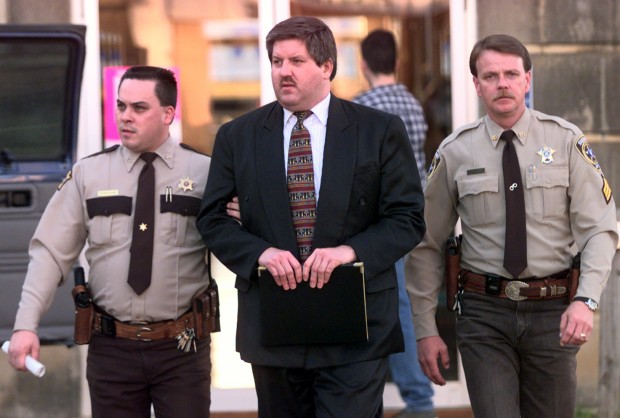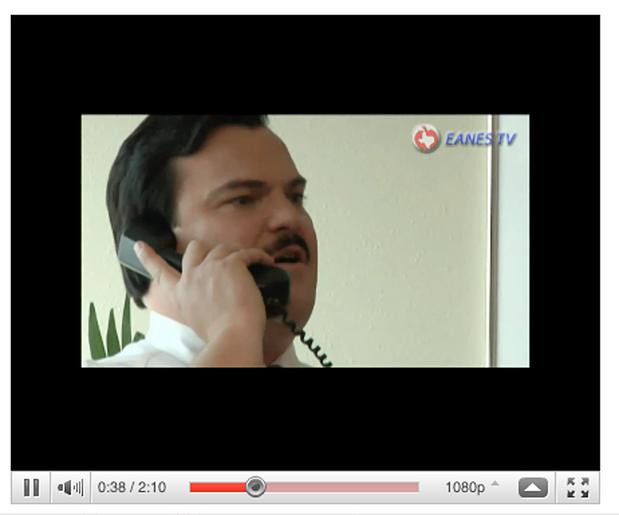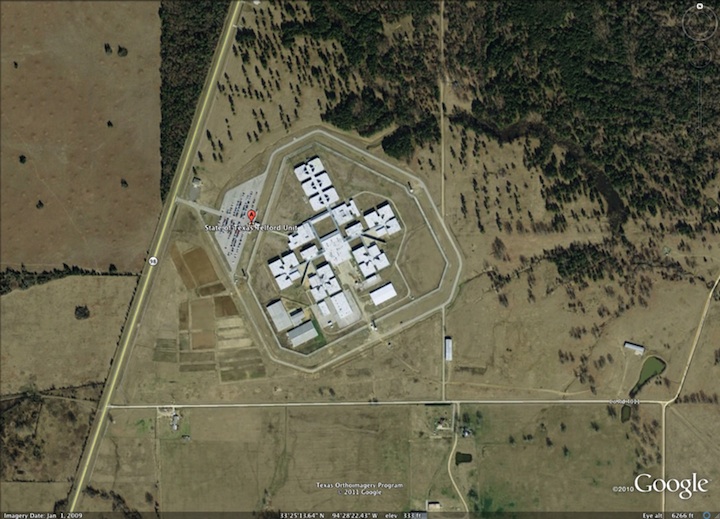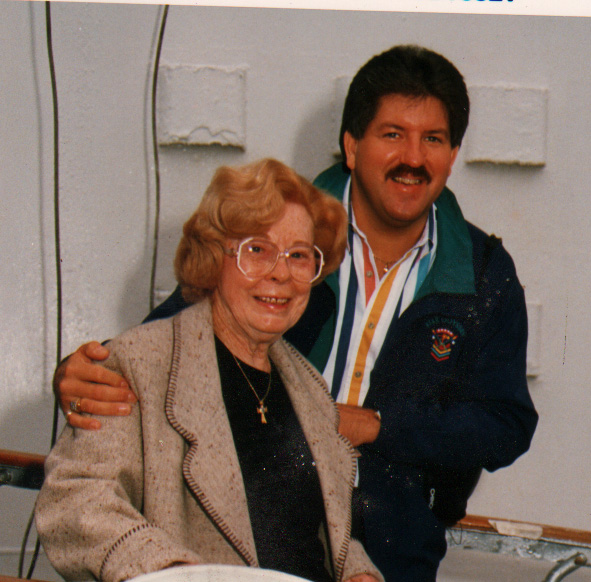So where were we? Oh yeah, Austin.
There was a side trip to Dallas after that, a couple of nights of finding pubs with tv screens so I could watch the NCAA tournament (Damn that faulty inverter!) , check-ins with assorted pals. I actually found a fine pub, Barnett’s Pub, in Waco of all places. Also downtown Waco on a Saturday night is a quiet place to sleep.
But the main reason for my return to Texas was still waiting for me at the Telford Unit of the Texas Department of Criminal Justice in New Boston, about 20 miles west of Texarkana. Bernhardt Tiede III, Offender No. 00864378, sentenced to life, eligible for parole in 2027, convicted of murdering Marjorie Nugent in Panola County, Texas, 1996.
That’s my aunt, Marjorie Nugent, and Bernie, the guy who killed her. And, after all these years, I was finally getting a chance to interview him. I flossed.
By the way, if you don’t know the story about Bernie and my Aunt, let me refer you to this previous dispatch: Cold Cold Heart.
I’m not going to tell you everything we talked about, although I can assure that we did talk about EVERYTHING. I have to save some things for the New York Times Sunday Magazine, which will be running my story about the interview later this year. Unless I freak out in the interim and decide to just drive straight to Alaska, never to be heard from again.
But here’s what I will tell you. We sat together for nearly two hours. There was lots of hugging and lots of crying. Him, not me. I was too pre-occupied with whether he’d notice that my breath was springtime fresh.
I’d been trying to talk to Bernie for years. We met once, at his trial back in 1998 and chatted briefly in the courtroom. He wasn’t in the best position for a long confessional conversation, seeing as how he was on trial for murder and all. I understood. He promised we’d talk when the time was right.
I sent him a couple of letters over the years, toying with the idea of writing about the murder again. I’d had a contract to write about it for Rolling Stone when it happened, but never got the story done. There were plenty of stories out there (including Skip Hollandsworth’s superb Texas Monthly piece) but none of them had the whole story, the family’s perspective, Bernie’s perspective. I was holding out for that. And as the years dragged on, the case tied up in assorted appeals and motions, I lost interest and so did the editors I was dealing with. So, I assumed, the moment had come and gone.
But then Richard Linklater’s movie went into production last fall and I realized I had one more chance. With Shirley MacLaine playing Aunt Teetie (that’s what we called her) and Jack Black playing Bernie, this was going to be a serious feature film treatment, not the cheesy Lifetime movie we’d always expected to be made.
So I went on the set, got tipsy with Shirley, had great conversations with Linklater and, once again, reached out to Bernie. This time, though, instead of just writing him letters (which I later found out had never reached him) I went through official channels and, as a writer for the New York Times, requested a one-on-one interview in prison. The Department of Corrections set it up. Bernie agreed. And off to New Boston I went.
There were rules. I would only have an hour for the interview. I could bring in one recording device, a notepad and a pen. I was not bring a cel phone or any cash. And I was not to wear white. Our appointment was at 1 p.m. on a Thursday and I was advised to show up at least 15 minutes beforehand, so I could be cleared by security.
The Telford Unit is about 5 miles outside of town, on Texas Highway 98. You can see the huge water tower in the distance and, as you get closer, the guard towers and the razor-wire fence. Truth is, it looks like every prison you’ve ever seen in a movie or on tv. Low-slung institutional buildings. Lots of open space around it. You couldn’t mistake it for anything else.
There’s a guardhouse at the entrance to the grounds, with a big sign advising you to STOP!, which I did. Except there was no guard. It was empty. I’ve had to go through tighter security to get onto the Warner Bros. lot. This struck me as not a good sign.
So I just found a parking place and walked in. Fortunately, there were guards inside the entrance building and an airport-style security gate. You put your belongings in a plastic tray, just like at the airport, and take off your shoes. You wait for the green light and proceed. The only difference is that they also check the bottom of your feet, to make sure you haven’t got a nail file hidden in your sock, I guess. Then you get the pat down, a nice thorough groping, no orifices involved. And, generally speaking, they are much friendlier than TSA agents. Maybe it’s a lower-stress job, I don’t know, but I was impressed by their lack of surliness.
You hand your i.d. to a guard behind a plate-glass barrier, get escorted through a large metal gate which, just like in the movies, clanks shut behind you. Then you get your i.d. back, through a slot in the wall, and the next gate opens so you can enter the prison yard. Then that one clanks shut, too.
We went down a cement pathway to the main residential building, razor wire on either side of us, and were met by a trustee who escorted us past another set of gates and into the “Visitation Area,” which looks like your average public high school cafeteria, white cinder block walls, dingy gray linoleum floors, a few signs on the wall about hygiene and manners and, of course, the armed guard watching your every move.
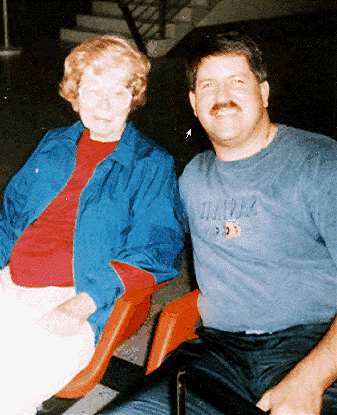 They sat me down at the non-contact area, the glass walls and telephone set-up you’ve seen a thousand times. Bernie finally came out, on the other side of the glass and, without prompting, I put my hand on the glass so he could put his hand to it on the other side. I think I saw that in Brubaker. He was leaner than I remembered, his hair turned gray. He was wearing prison-issue aluminum-frame eyeglasses and dressed in all-white.
They sat me down at the non-contact area, the glass walls and telephone set-up you’ve seen a thousand times. Bernie finally came out, on the other side of the glass and, without prompting, I put my hand on the glass so he could put his hand to it on the other side. I think I saw that in Brubaker. He was leaner than I remembered, his hair turned gray. He was wearing prison-issue aluminum-frame eyeglasses and dressed in all-white.
It was the worst telephone connection I’ve ever had, as if he was in Ulan Bator, even though we were only two feet apart. We chatted for a few minutes, small talk, “So, how’s prison?” “Met anyone nice?” That sort of thing.
Once the guard, Lt. Anderson, a really nice guy, decided we weren’t a risk to each other, he brought Bernie into the “contact” area, the cafeteria-like room. They’d wanted to make sure, I guess, that I wasn’t secretly on a mission to avenge my aunt’s murder. To which I say, “Clearly, you didn’t know my aunt..”
So Bernie comes out and gives me the longest hug I’ve ever had in my life, longer even than the one I got from Richard Simmons. It was a good three-minutes and tight, too. Bernie’s a big man. Finally, though, he pulled away and sat down. He was already crying.
I won’t tell you his answers, but I will tell you that I asked him why he’d become so involved with my aunt, a notoriously unpleasant woman, why he’d killed her when he did (she was after all 82 years old with a heart condition and a bad temper) and, most importantly, why he had left her in the freezer for 9 months instead of disposing of the evidence. He answered all these questions. But you’ll have to wait until the Sunday Magazine article comes out to hear them.
(Oh, be quiet. How much did you pay for this? Exactly. Pipe down.)
Lt. Anderson let us go for nearly two hours, way longer than I expected. Bernie and I hugged goodbye. He gave me his e-mail address. We promised to keep in touch. Then I was escorted out of the Visitation Area, through the first set of gates, back down the walkway, through the entrance gates and then, just like that, back out into the free world.
I drove towards Texarkana, to find another bar and another tv set, to watch more basketball games. Bernie went back to his cel.
